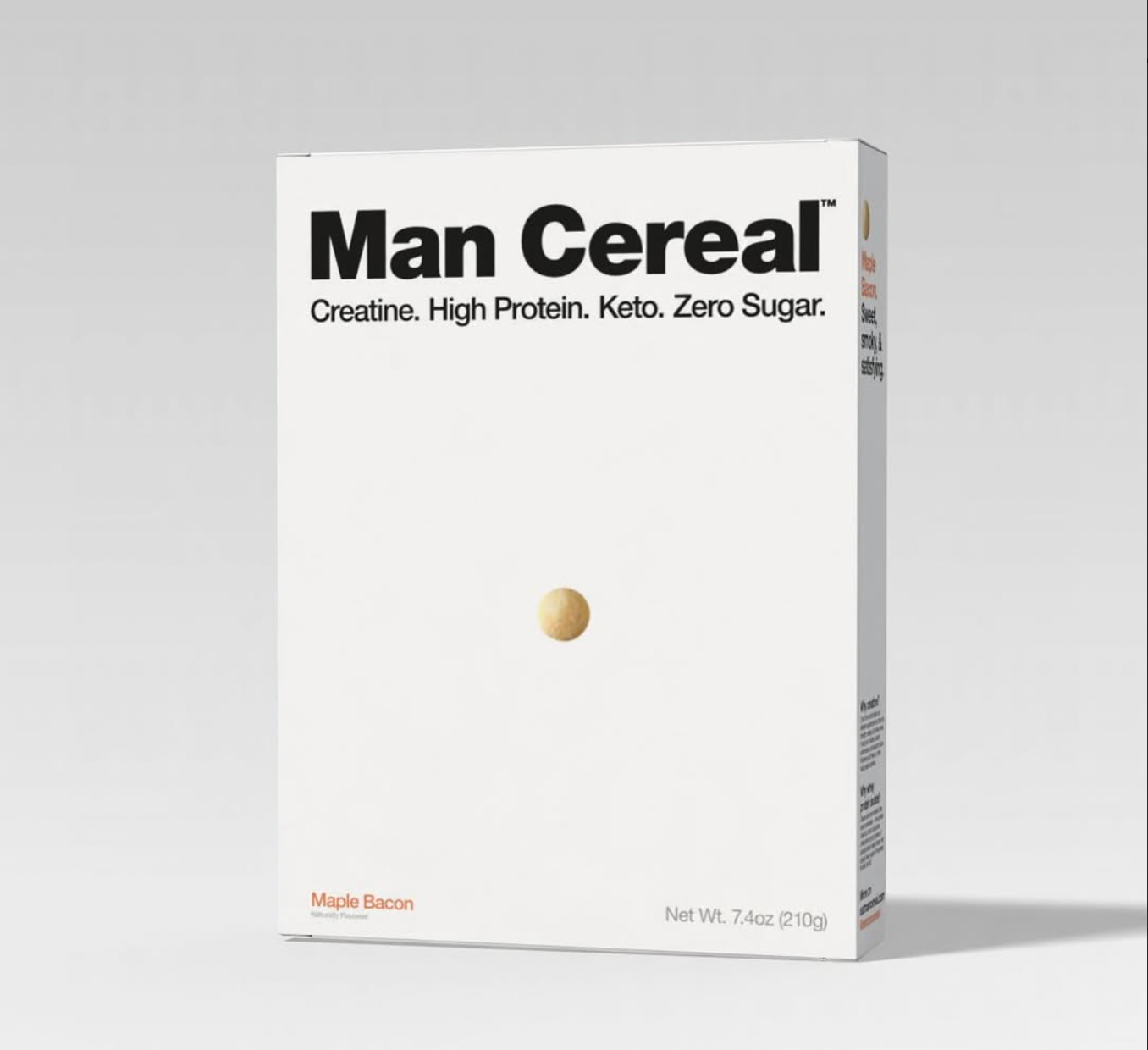
The irony is not lost on us, but protein is everywhere – in cereal, skincare, even toothpaste. It’s less about nourishment and more about cultural capital and status. For brands, it’s riding the same hype wave kale caught a decade ago.
As our competitive wellness FORUM pointed out, health is no longer simply about balance or longevity – it’s about performance, comparison and aesthetics. Wellness has mutated into a competition, a never-ending leaderboard where protein counts, wearable trackers and marathon-length hot yoga sessions become scorecards for identity. And brands, sensing the obsession, have rushed to monetise it – often brilliantly, sometimes absurdly.
Wellness used to represent mindfulness, slowing down, balance and breathing. But somewhere in the past decade, that whisper got turned into a GIF-loop of “protein everything” — protein waters, protein gums, protein pizza, protein pickles, protein shakes for toddlers – innovation or overkill?
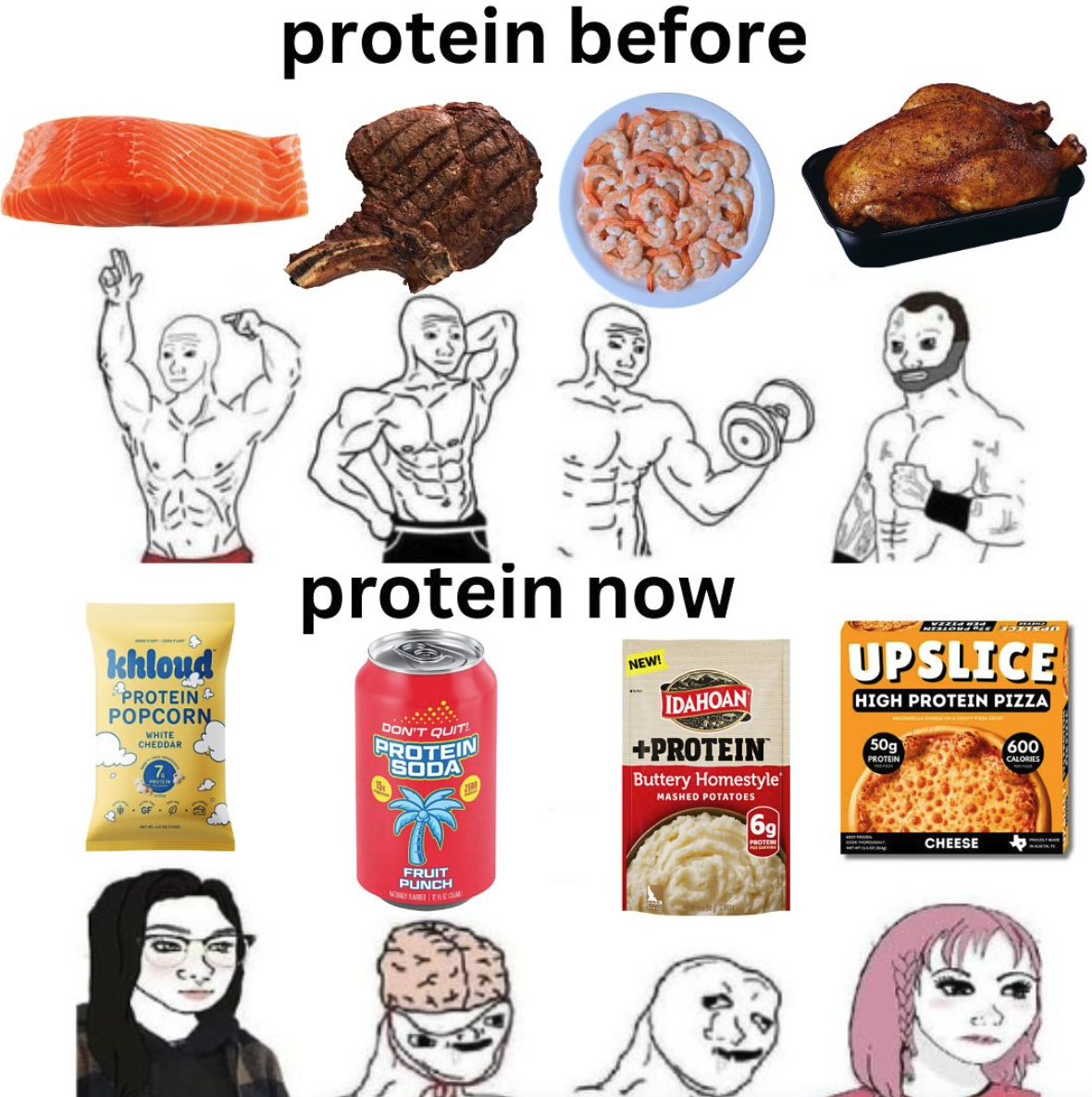
The frenzy around protein wasn’t an isolated moment – it’s part of a larger shift in wellness culture. Over the past decade, the focus has moved from quiet mindfulness to spectacle, from measured self-care to performative extremes. Nowhere is this more visible than in the rise of bucket coffee: across the US, cafés started serving caffeinated drinks in literal plastic pails. On camera, it’s absurdly TikTok-ready; off-screen, it signals a broader movement – from the adaptogenic, slow-wellness blends of the 2010s to caffeine excess, over-the-top rituals and a culture increasingly driven by irony and spectacle.
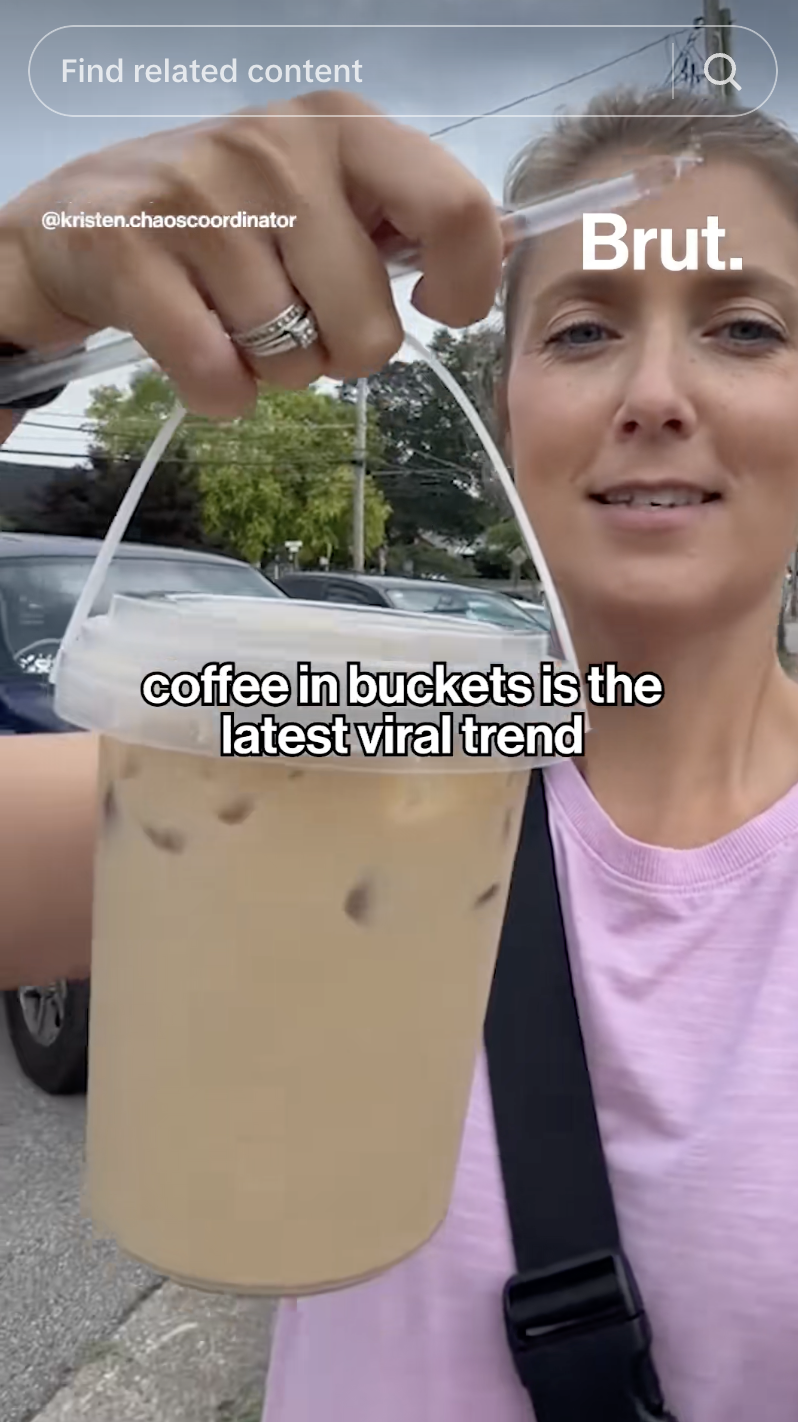
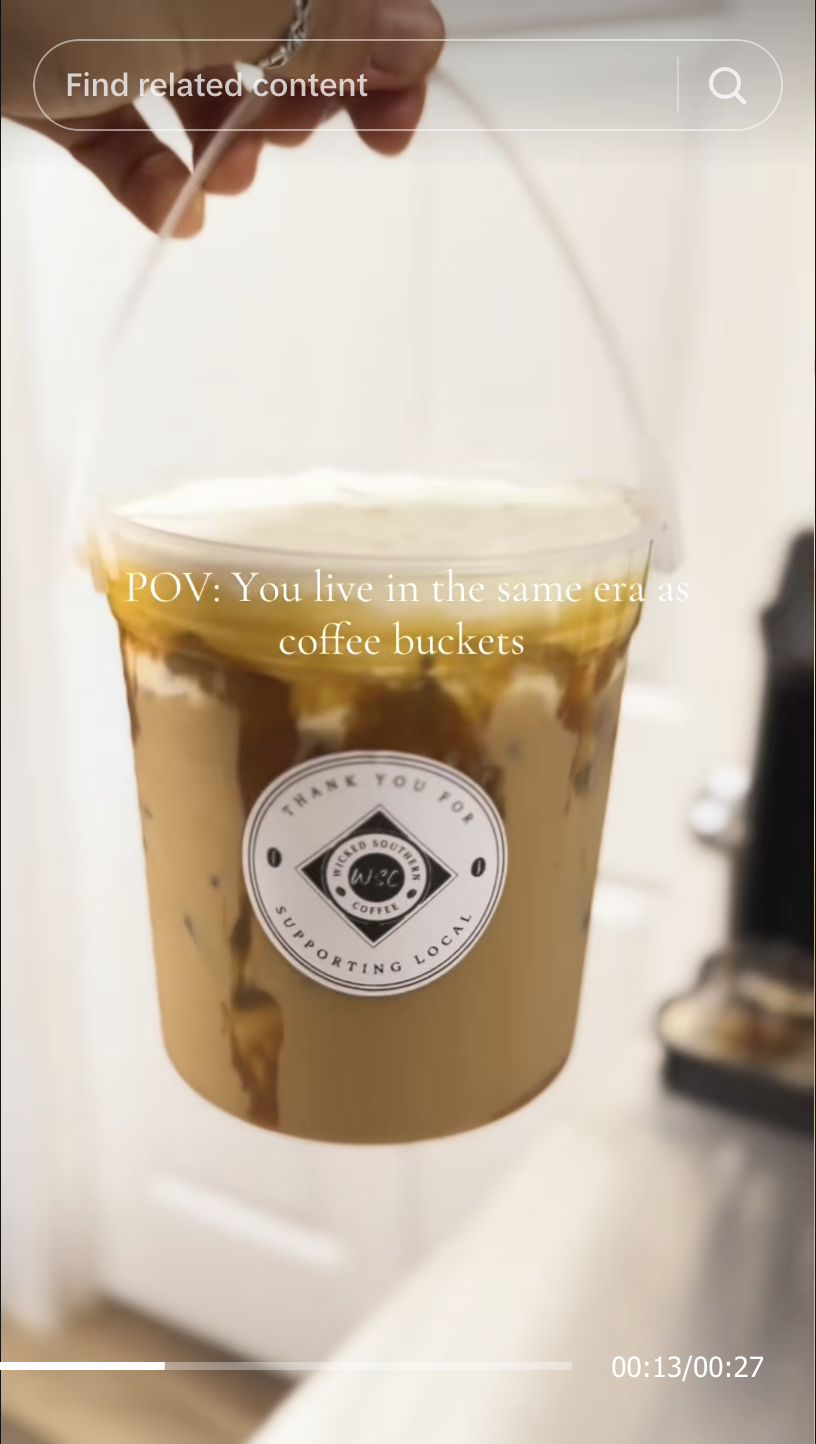
This swing isn’t just about coffee, or protein – it’s about narrative extremes. Brands anchored too long in serene minimalism run the risk of feeling pretentious. Meanwhile, brands that embrace the chaos – with self-awareness – can turn spectacle into resonance.
The trick is to participate in culture, but lightly acknowledge the absurdity. That’s where resonance lives. It all depends on how well the brand can read the room.
Man Cereal offers a clear example of a brand leaning into the protein craze with a wink rather than a lecture. Its Instagram pitches “High protein. Creatine. Keto. No added sugar. No BS.” And yes – and this is part of the delight – its packaging and tone lean into macho irony, riffing on “boy dinner” culture while serving up cereal that literally “manned up your macros”. It’s absurd, it’s playful and it doesn’t take itself too seriously. Maybe that’s the point. Man Cereal doesn’t just chase trends – it satirises them while giving consumers what they want. It’s a smart lesson in how irony, clarity and simplicity can elevate a wellness-obsessed product without feeling suffocating.
Food isn’t neutral. In the mid-2020s, diets have become ideological battlefields. After a decade of shaming butter, meat, carbs and dairy, trends swung dramatically back toward indulgence. What was once “dirty” is now “defiant,” riding political waves that treat food as identity, not just intake. As The Rise of the Wellness Anarchist essay argues, pointed out by Tyla Jurgens in SEED CLUB, this feels like a cultural revolt as much as a taste preference shift. And for brands, this politicisation of food means every product is cultural freight – not just calories.
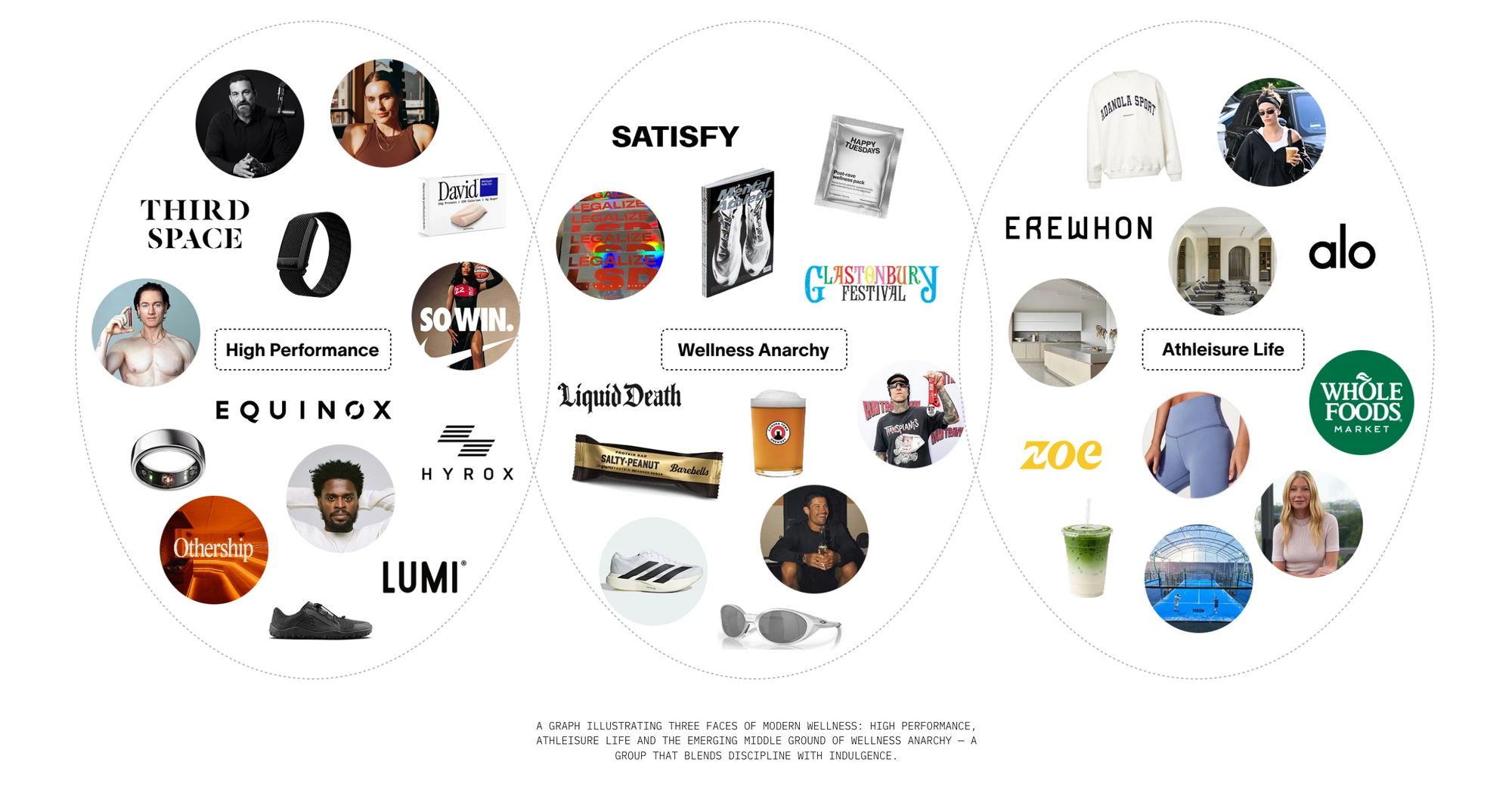
What’s the bigger takeaway for brands? Trends are signals, not absolutes. Protein is no longer just a nutrient, it’s a flag. Caffeine buckets aren’t just coffee, they’re spectacle. Food isn’t just fuel, it’s identity. The real opportunity lies in understanding why people care, and joining that conversation in smart, self-aware ways. Use irony, clarity and context. Ride these new behaviours but don’t be afraid to critique them. Because in 2025, culture doesn’t only reward extremes – it increasingly rewards reflection, too.
| SEED | #8344 |
|---|---|
| DATE | 19.08.25 |
| PLANTED BY | PROTEIN |


